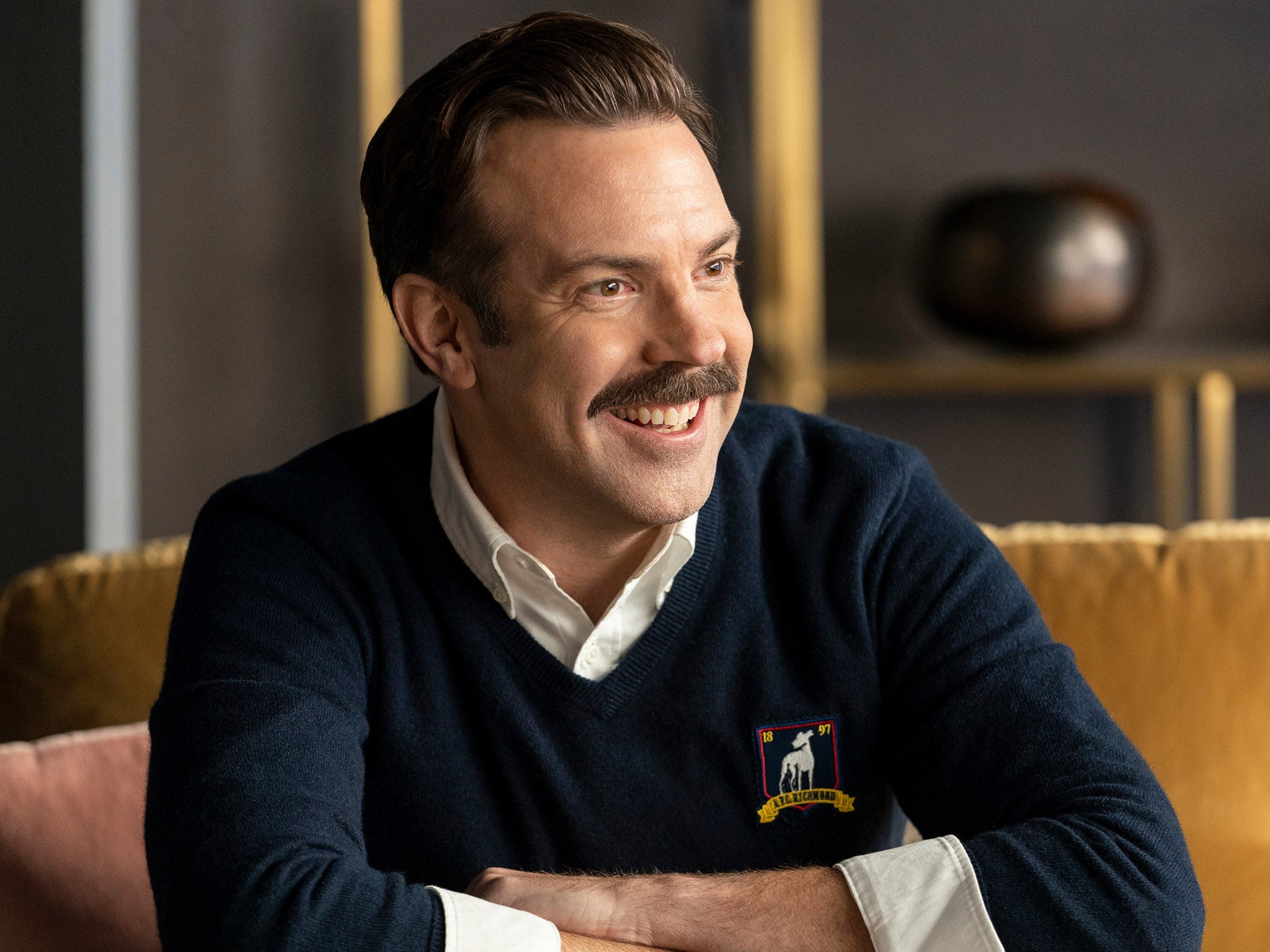Ted Lasso has the most elusive quality in TV: charm
‘The Sopranos’ didn’t have charm, and neither does ‘Succession’, so it doesn’t automatically equal great television. But when you spot it, writes Ed Cumming, it’s equivalent to magic


Ted Lasso has no right to be coming back for a second series. Frankly, Ted Lasso had no right to be commissioned in the first place. Few series have been less promising on paper. Football is a notoriously barren subject for scripted TV. Invented shenanigans can never match the real sport for intrigue. Yes, I do include Dream Team. Even worse, Ted Lasso was based on a short commercial ad for NBC’s Premier League coverage. It’s basically one joke: a fish-out-of-water American football coach is hired to manage a fictional Premier League side, AFC Richmond, with ensuing high jinks about language and culture. As premises go, it’s hardly The Sopranos.
Still, here we are. The second series is out and a third is on the way. It’s a rare hit for Apple TV+. Its creator and star, the comedian Jason Sudeikis, went viral the other day with a T-shirt celebrating the penalty-missing England stars. He has been nominated for the best actor Emmy. Ridiculously, four of his male co-stars have been nominated for best supporting actor – half of the whole category. The show is up for Best Comedy. (Emily in Paris is also in there, showing that the comedy prize judges still have a sense of humour.)
What’s Ted Lasso’s secret? It’s not roll-around-on-your-carpet funny, it’s not especially sharp, it doesn’t exude production gloss. Aside from Sudeikis, hardly a household name, it is not packed with celebrities. What it has, in abundance, is a much more precious commodity: it’s charming. Something in its gentle humour draws you in, puts you at your ease and tells you that everything’s going to be alright. You want these characters to succeed, and by extension, you wish the show well, too. “Do you believe in ghosts?” Ted is asked in the first season. “I do,” he replies. “But more importantly, I believe they need to believe in themselves.”
Charm is one of the most elusive qualities in scripted TV. Unscripted programmes that rely on the charm of their performers, such as Mortimer and Whitehouse: Gone Fishing, are in a separate category. Jokes can be written. High drama can be engineered. Charm can’t be faked. It is a fortuitous coincidence of performers, script and tone. You know it when you see it. Try too hard and you slip into tweeness, but without it you can be left with something cold. Charm is not a prerequisite of excellence. The Wire isn’t charming, neither is The Sopranos, or Mad Men, or Breaking Bad, or Succession. There’s nothing especially likeable about these spectacles, admirable as they are. Nor is it a requirement for great comedy – take The Office, People Just Do Nothing or Curb Your Enthusiasm. Where it’s present, though, charm has the power to make otherwise ordinary shows loved.
Ted’s direct antecedent is probably My Name Is Earl, the Noughties comedy about a petty criminal trying to make good on his karma. Charm is a fleeting thing and you know it when you see it. Gilmore Girls had it. Parks and Recreation had it. Apple’s underrated Trying has it. The early West Wing, when it knew it was a TV show, had it, but the later episodes, when the programme had started confusing itself with the actual US government, didn’t. In the UK, the high-water mark of charm in recent years was Detectorists. Mackenzie Crook’s metal detector comedy had all the makings of a blink-and-you’ll-miss it BBC Four one-off: obscure subject matter, passion project of a big star, atmosphere of homeliness. Instead, it ran for three series, with a reputation that only grows with the passing years. Schitt’s Creek was another charmer, and not coincidentally another sleeper hit. A ruined rich family ought to be spoilt and unsympathetic figures, but the series charms us by putting them in a positive light. The town is a collection of oddballs, but none of them acts with bad intentions.
Look at what these series have in common, and a picture of charm begins to emerge. They are earnest enough not to be cynical, but not so earnest as to lapse into tweeness. They’re about men and women trying their best in pursuit of noble yet sometimes trivial goals. They’re not without edge: these characters live in a recognisable world, with attendant setbacks and disappointments, even if the tone precludes anything too grisly. But at heart the charming programmes do not espouse nihilistic or cynical views of the universe. If you do right by the world of Ted Lasso, eventually the world of Ted Lasso does right by you. We believe in these characters, but more importantly they believe in themselves. After the past 18 months, it’s hardly a surprise that we’re sitting here, desperate to be charmed.
Join our commenting forum
Join thought-provoking conversations, follow other Independent readers and see their replies
Comments


Bookmark popover
Removed from bookmarks